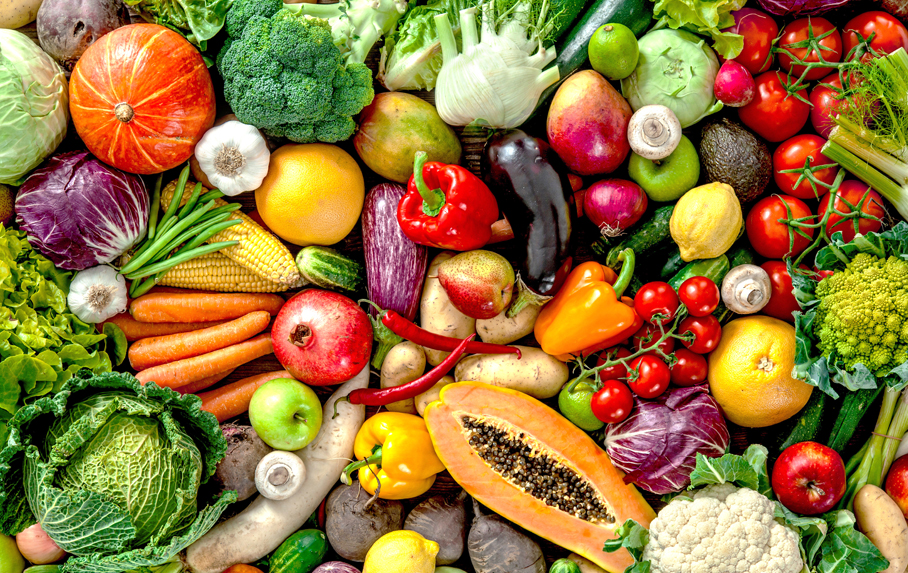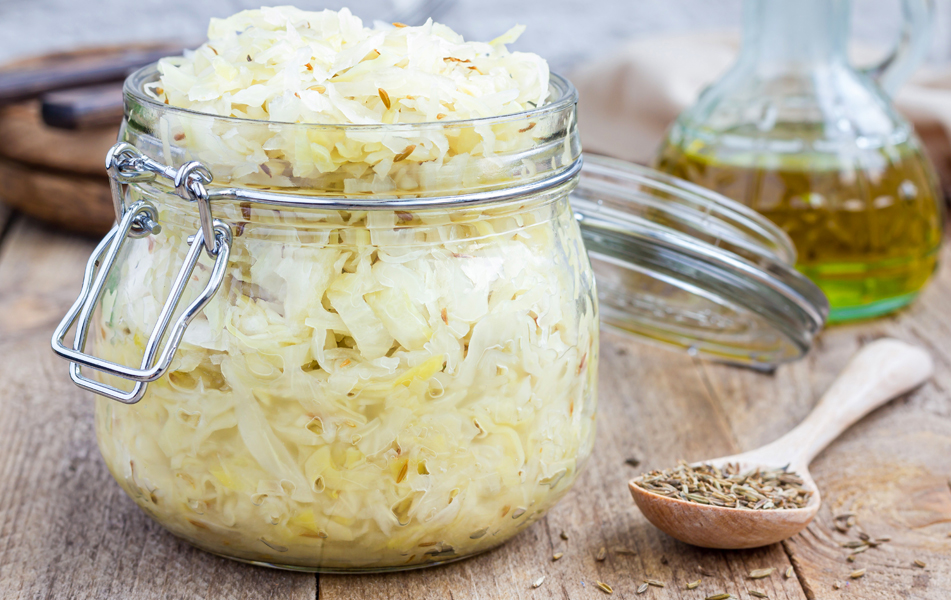Paramount to good health is bacteria. This is no new concept, and the argument has been made an increasing number of times in recent years– our bodies quite literally depend on bacteria to truly flourish. Unhealthy bacteria enters our bodies through exposure to things like pollution, antibiotics and refined foods, which only leads to toxic waste and acid build up in the body. There are thousands of naturally-occurring healthy bacterias, or probiotics, in our bodies too, they keep the body and particularly our intestines balanced and healthy. In a nutshell, probiotics help to; regulate digestion and bowel movements, maintain blood sugar levels, maintain immunity, and ensure proper vitamin and mineral absorption in the body.
A great way to include probiotics in the diet is through fermented foods, like fermented fruits and vegetables. Fermented foods undergo a process of lacto-fermentation – when the starches or sugars in vegetables and fruits are converted into lactic acid, which is a natural preservative that acts as a defense force against harmful bacteria. Funnily enough, the production of this lactic acid is made possible by lactic-acid-producing bacteria, or lactobacilli itself (lactic acid is the by-product of lactobacilli). The presence of lactobacilli in fermented fruits and vegetables produces beneficial enzymes as well as antimicrobial substances. Fermented vegetables are also more digestible and have increased levels of vitamin C and vitamin A.
“Including a large variety of fermented foods in the diet
helps to expose our bodies to a wide variety of
microorganisms, meaning our immunity will be stronger
and we can ward-off sickness more easily.”
The balance of our intestinal microbiome (microorganisms in our intestines) ensures that the body can absorb the maximum amount of nutrients from the food we eat, and fight germs to destroy bad bacteria. Including a large variety of fermented foods in the diet helps to expose our bodies to a wide variety of microorganisms, meaning our immunity will be stronger and we can ward off sickness more easily. Fermentation is a very cost-effective way to maintain this balance, and get a good daily dose of probiotics in a very delicious fashion.

Making lacto-fermented fruits and vegetables is very simple, and only relies on:
– fresh fruits or vegetables
– good quality sea salt
– a jar with a tight seal
– an airy space, away from heat and light
– time (like all good things)
Sounds simple, right? It is! Once the fruits or vegetables have been washed and cut up, the process relies on salt to preserve the mixture for the first few days, before there is enough lactic acid present to preserve the fruits or vegetables for 6 to 12 months.
My favourite fermented food that follows this process is sauerkraut. It’s been made for centuries and is a huge part of tradition in Eastern European countries, born out of necessity more than anything. When fresh produce was scare during winter months, prepared sauerkraut could be relied on for a burst of freshness, life force and vitality in daily life. Sauerkraut is a wonderfully simple fermented food that is worth the hype of recent years; however, don’t let its price tag discourage you from recognising other probiotic-rich foods you’re probably already eating.
1. Yoghurt – Simple and traditional yoghurt made from just milk, milk solids and culture is the stuff I’m referring to here. It’s tart and tangy and bursting with gut-loving goodness.Consider a couple of tablespoons your daily probiotic (that’s also a delicious breakfast or snack). If you’re not into dairy, there are loads of different probiotic coconut yoghurts on the market now too, available conveniently at supermarkets.
2. Miso – Not just a starter at a Japanese restaurant! Miso is a probiotic, medicinal food made from fermenting rice or legumes with koji. Aside from boosting gut health, it’s also been shown to elicit potent antioxidant free-radical quenching power. Miso doesn’t have to be limited to soup– it’s a wonderful alternative to using salt and even rivals our beloved vegemite! Try spreading half teaspoon of high quality miso paste on your avocado toast!
3. Apple Cider Vinegar – This good bacteria-rich, sour product makes an ideal salad dressing,fizzy beverage and overall health tonic. It’s important you choose a raw, traditionally prepared variety “with the Mother” which refers to the culture used to create the vinegar in the first place. Apple cider vinegar is well known for inhibiting growth of unwanted bacteria(think parasites, fungal and yeast-overgrowths). It’s also a great digestive tonic that encourages production of digestive enzymes that assist our body in breaking down nutrients from within food. A teaspoon a day, diluted in a glass of water or used as a salad dressing is a great place to start.

REFERENCES
Using probiotics and prebiotics to improve gut health
The Human Microbiome: at the interface of health and disease
Fermented grain products, production, properties and benefits to health
Vinegar: Medicinal Uses and Antiglycemic Effect






